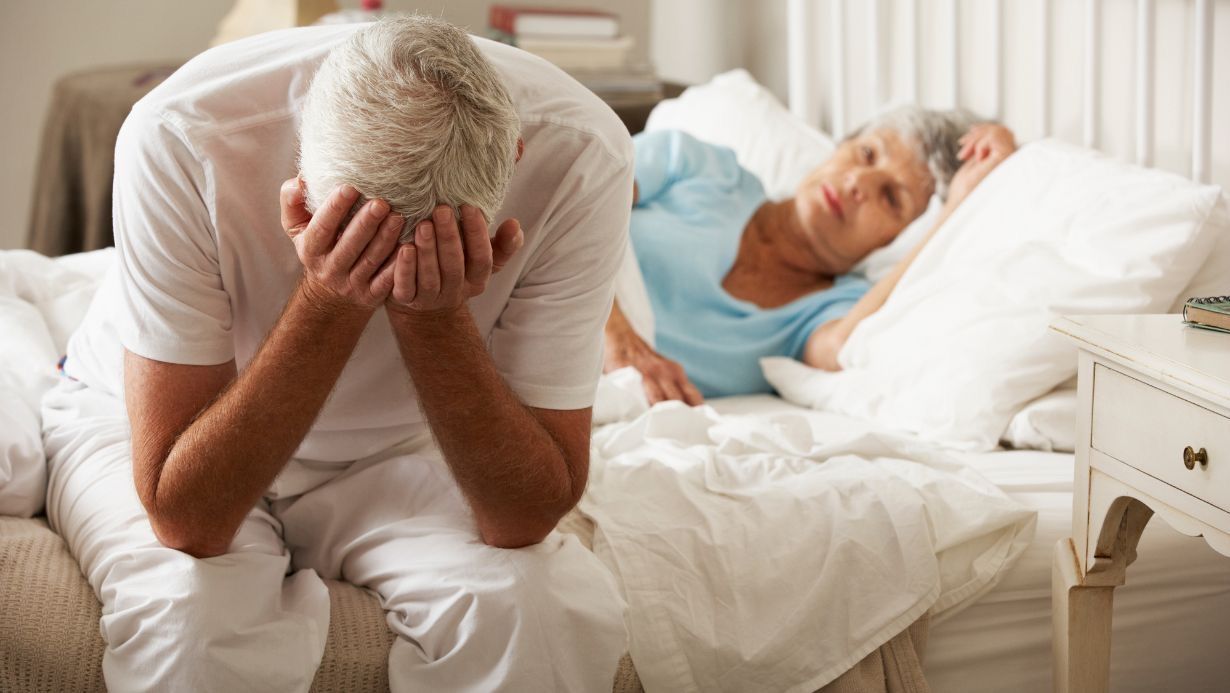Alzheimer's and Sleep
As an in-home care provider, we care for many dementia or Alzheimer's patients who are also dealing with sleep issues. Thankfully, we have discovered many ways to help them sleep better.
Quality Sleep as we Age
Quality sleep is as vital for good health as a healthy diet and regular exercise. It improves brain function, mood, and health. "Not getting enough quality sleep regularly raises the risk of many diseases and disorders. These range from heart disease and stroke to obesity and dementia," according to the National Institute of Health (NIH).
Experts recommend adults get seven to nine hours of quality sleep a night with a consistent sleep schedule. Quality sleep is uninterrupted and refreshing sleep. Despite what many think, we do not need less sleep as we age; however, many older adults experience changes in the quality and amount of sleep they get.
"Researchers estimate that between 40% and 70% of older adults have chronic sleep issues, and up to half of cases may be undiagnosed," according to the Sleep Foundation. Causes include changes in the body's internal clock [circadian rhythms], discomfort and pain, the need to use the bathroom at night, and more.
People with dementia and Alzheimer's often have even more severe sleep issues. "As with changes in memory and behavior, sleep changes somehow result from the impact of Alzheimer's on the brain," the Alzheimer's Association reports. Experts believe dementia can affect melatonin production (a sleep hormone that helps you feel sleepy when it gets darker).
A lack of sleep can increase dementia symptoms, such as restlessness, delusions, and wandering, and these sleep issues often become worse as dementia progresses.
Sleep Issues for People With Dementia or Alzheimer's
- Difficulty Sleeping
They may take longer to get to sleep, sleep less deeply, wake up more frequently, have trouble going back to sleep, wake up very early, and/or not get enough sleep. - Daytime Napping
They may feel drowsy during the day and drift off to sleep in the middle of the day, making it harder to sleep at night. - Sundowning
Sundowning is a term used to describe a state of confusion, anxiety, aggression, pacing, and/or wandering that occurs in the late afternoon and into the night. - Obstructive Sleep Apnea
People with Alzheimer's are more likely to have obstructive sleep apnea – a condition where the throat muscles relax, blocking the airway, which causes the person to repeatedly stop and start breathing as they sleep. - Restless Leg Syndrome (RLS)
RLS – a condition that causes a very strong urge to move the legs – is common in people with certain types of dementia. - Depression
Depression is common in people with dementia and is often associated with insomnia and other sleep disturbances.
How to Promote Better Sleep
Sleep-inducing medications are always the last resort for people with dementia or Alzheimer's because research has found that sleep medications often have little effect on sleep quality for older adults, may cause a decline in their ability to care for themselves, and can increase the risk of falls and confusion.
Therefore, non-medication approaches that focus on improving sleep routines and environment should always be the first step.
- Try to determine the source of the problem, such as chronic pain, uncomfortable temperatures, etc.
- Treat any underlying conditions, such as depression, RLS, or obstructive sleep apnea.
- Manage medication by reading the side effects because some can cause insomnia. If sleep is an issue, talk to your doctor about changing medications, and try not to give medicines in the evening.
- Provide light therapy
- Maintain a regular routine. Eat, go to bed, and wake up at the same time every day.
- Avoid alcohol, caffeine, and other stimulants, especially in the evening.
- Encourage physical activity at least four hours before bedtime
- Discourage daytime napping
- Create a quiet and calming setting in the evening with soft music, a comfortable bedroom temperature, etc.
- Consider melatonin supplements, which may help improve sleep and reduce sundowning.
- Provide nightlights
- Discourage TV watching during periods of wakefulness at night.
Ask About In-Home Care for Better Sleep
The experienced caregivers at Comforting Home Care by Phoebe are familiar with the signs of sleep issues and how to minimize them. Plus, our services provide much-needed respite for family caregivers so they can enjoy better sleep and peace of mind.
Give us a call today at 610-625-5206, or connect with us online.












